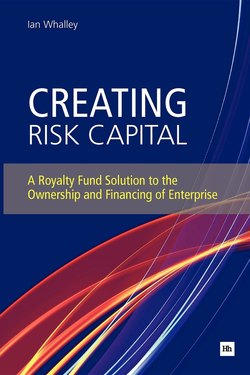Читать книгу Creating Risk Capital - Ian Whalley - Страница 22
На сайте Литреса книга снята с продажи.
Reuters
ОглавлениеPaul Julius Reuter founded his news agency in London in 1851. The British provincial press acquired control in the 1920s, and sold a 50% share to the national press in 1941, in wartime, when the Reuter Trust Agreement was drawn up. This proclaimed that the first objective of the company was “to maintain in every event its position as the leading world news agency”. [8] It also aimed “to protect the agency from outside influence and interference, notably by the British Government. But equally it aimed to protect Reuters from inside corruption, from any abandonment of standards by the directors or management”. [9]
In the 1960s the company embarked on a transformation of its business, and entered what the Chairman, Sir Denis Hamilton, subsequently described as “a period of incredible risk taking and technical innovation”. [10] At this time the company was making a modest annual surplus, essentially as a co-operative collectively owned by newspaper publishers, some of whom were in financial trouble and more interested in realising their investment than in investing any more. So funding came from bank loans.
Alongside its traditional business, by the early 1980s the company was enjoying the remarkable success of its Monitor market data and news services business, and was funding, still with the aid of bank loans, a major development programme aimed at providing new dealing services for the financial markets. Eventually, for a variety of reasons, it decided to go public.
The flotation in 1984 enabled the company to further increase its capital fund for development and acquisitions; it enabled its owners to recognise the full value of their investments; it provided a means of rewarding senior management; and it strengthened the Reuter Trust, which had turned out to be simply a shareholders’ agreement capable of being altered or scrapped by them. The Trust ended up with a ‘Founders’ Share’ controlled by the trustees, enabling them to outvote the entire body of shareholders in the event of any threat to Trust principles.
The company went on to enjoy remarkable growth through its Monitor and dealing services, and through successful acquisitions. It was declared an internet company and its stock rose in the boom and fell in the bust around the turn of the century, as it suffered a severe reversal in its fortunes. Eventually in 2008 it combined with The Thomson Group of Canada to form a new company, Thomson Reuters.
